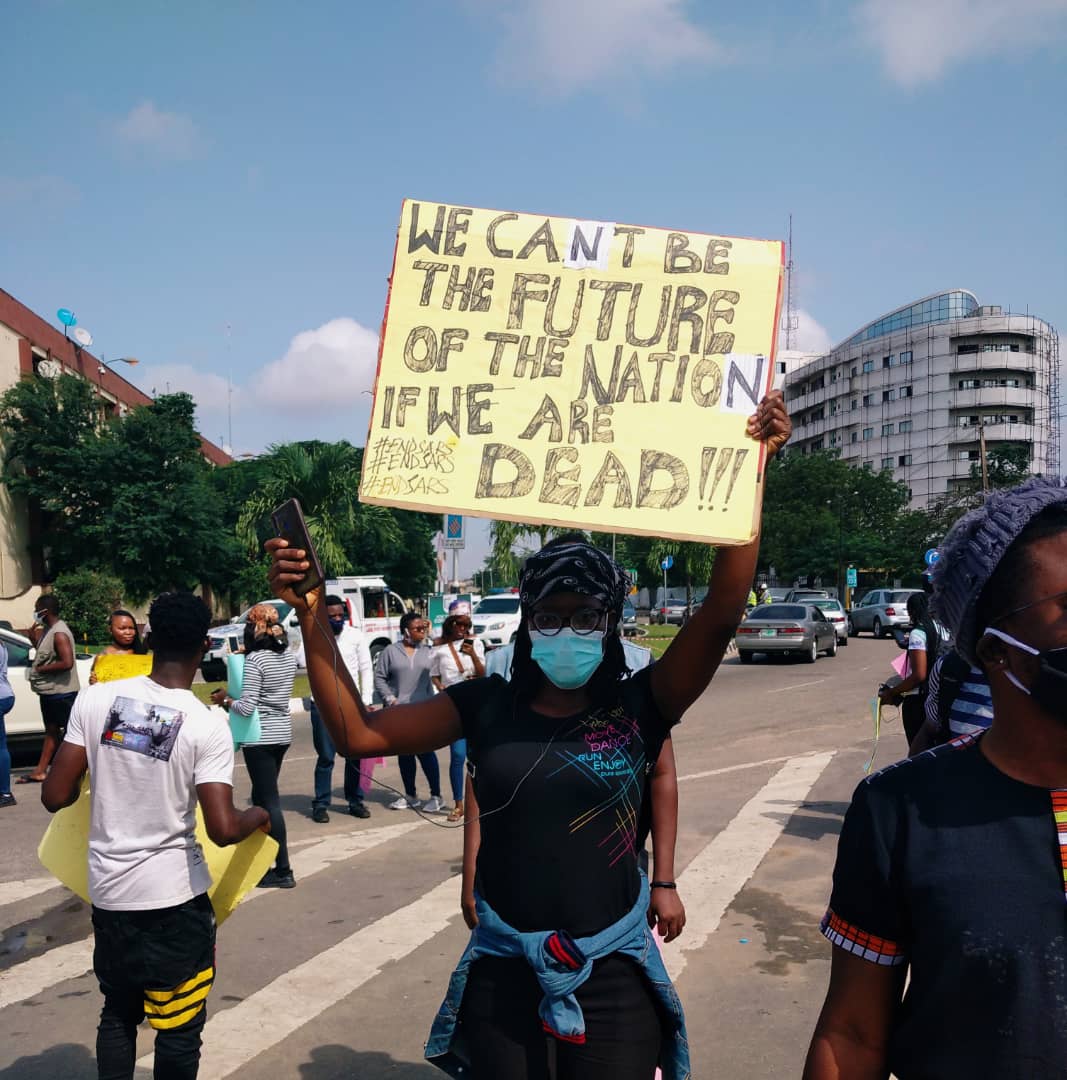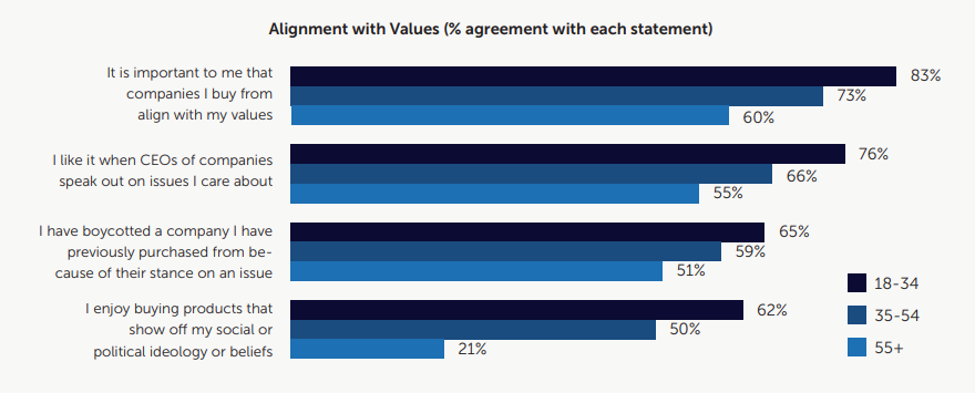What should your brand be doing during #EndSARS protests?
Guest Authors: Onalaja and Ojewunmi make five recommendations to companies trying to decide on their stance during the #endSARS protest.

#EndSARS protests are catching many businesses off guard. Companies, large and small, are scrambling to communicate responsibly in real-time.
In a moment in our national history that is as taut as this, your brand must tow a fine line. Beyond the challenge of capturing your message in a manner that is empathetic and effective (as opposed to staid and tone-deaf) there is the unique challenge of responding in a manner that doesn’t threaten the continued existence of your business. More on this later.
Over the last couple of days, some brands have responded so well that compiling their efforts presents us with a useful framework to answer the question of what your brand can do as well. For instance:
- Flutterwave (and a coalition of other tech companies) created a fund for the protest and shared a public link that allowed other Nigerians to send donations.
- Piggyvest created the “tri-fist” poster that has now become the de facto logo of the protests.
- Aelex, a law firm in Victoria Island made some of their lawyers available to bail arrested protesters for free.
- Sterling bank has been one of the more vocal Nigerian brands on police brutality through their town hall meetings and social videos.
- Bolt is giving 50% discount when riders use SOROSOKE -- one of the rallying phrases for the protests (amidst accusation of alleged collaborations between their drivers and rogue SARS elements)
- Chicken Republic shared free meals to protesters early on in the protests.
- Bigi donated free packs of bottled water to protesters.
- Quidax, a leading cryptocurrency exchange in Nigeria, stepped up to instruct people on how to donate Bitcoin
- Rene supermarket handed out bottled water to protesters along the Alexander stretch of Ikoyi.
Read more on How Nigerian tech companies are supporting #EndSARSProtest
There is a long list of brands who have played a significant role so far and we can’t quite exhaust them (or perhaps, there is no point in attempting to do so). The objective of this section is to prove to you that brands can sensibly engage with the protest without coming across like jerks.
Should your brand be a part of this protest?
There is no easy answer to this.
We expected brands such as the historically youth-focused GTBank or Airtel, or Glo to play bigger roles. But they’ve been quiet. And that’s understandable.
Nigeria is a peculiar context. Unlike North America or Europe where it’s easy to have activist brands such as Nike, Smirnoff, AirBnb or Dove, the backlash for brands taking a stand in Nigeria won’t only come from an aggrieved proSARS section of the populace, but the government will also step in to chastise your business. We are seeing instances of these already even as the government frustrates the funding efforts of the protesters by allegedly blocking accounts and deactivating funding links.
A lot of the brands who have been quiet are more comfortable alienating the EndSARS protesters, rather than jeopardize their standing with the Nigerian government. But the protesters are watching too. As the protests shuffle along; they are committing every day to only patronize brands that stand with them.
Meanwhile, the banks making things harder for us. Don't worry, we will come back to you. We'll meet at the front #EndSARS
— FK. (@fkabudu) October 17, 2020
As the millennial and Gen Z demographics continue to demand meaning from the brands they patronize (54% of consumers expect brands to take an active role in social conversations). Your brand might want to take these "warning" tweets with more than a pinch of salt. Brand responses on social issues have shown to post both positive and negative effects on sales.

As it stands, you are damned if you do and damned if you don’t. At this rate, you simply want to pick the brand of damnation you can manage.
Uncle @AlikoDangote your Silence is Golden sir. We see you ooo
— Jeffrey Olusesan (@JeffreyOlusesan) October 16, 2020
It's only olamide VS Don jazzy fight you know how to settle.
Your Spaghetti will start eating themselves as from today
Copied#EndSARS#EndPoliceBrutality
When the dust settles, you want to make sure your brand isn’t one of the ones cowering under the table as the government rapes the nation.
Here is a framework for supporting the protest without jeopardizing your stand with the government.
How should your brand engage with the #endSARS protest?
Here are five suggestions:
- Be prepared to get nothing out of it
Your support in this protest is not about your brand ambition. This is not the time to calculate how much brand lift you’d get from this. This is not an opportunity to notch up your relevance with the millennial or Gen Z demography.
The kids (read; the protesters) can smell performative allyship from miles away. As the protesters have done with many politicians and celebrities who want to hijack the protests; they gladly de-platform your brand. They will shame you.
GTBank showing up to the protest with branded water bottles is an example of how not to support the protest.
@gtbank is here to donate water for us this morning at alausa protest ground.@SavvyRinu @UnclePamilerin #EndSWAT pic.twitter.com/55AiFv6H3M
— Damilola Heraldˢᵀ🔱🔱🔱 (@herald007) October 14, 2020
Coupled with the fact that GTBank has posted nothing on its social pages since the start of the protests; this is clearly a low-authenticity gesture from GTBank.
- A tweet is not enough, but it’ll do
As brand managers who have been at the forefront of online reputation management for several brands, we understand the risk of identifying fully with an anti-government protest. Some brands quite frankly can’t risk their relationships with the government. In this case, sending out a sensible update acknowledging the broad theme is a safe bet. Here is an example from Oando. You’ll notice how their team focused on speaking to #EndingPoliceBrutality as opposed to #EndSARS.
We can achieve so much more when we work together as one nation, bound in unity. As a people, we must embrace dialogue and collaborative solutions to push for progress by way of #institutionalreform across all sectors in a bid to create the Nigeria we seek. #EndPoliceBrutality pic.twitter.com/Z3KgpTiG1F
— Oando PLC (@Oando_PLC) October 13, 2020
In other markets, we’d be championing for brands to “Soro Soke” (speak up, take a stand), but alas, Nigeria. We would rate this gesture low-medium in perceived authenticity.
- Silence is an option
Quite frankly, you can keep quiet and let the chips fall where they may. But as we said earlier. You are damned if you speak and damned if you don’t. So pick the brand of damnation you are ready to deal with.
- Lend a hand but it's okay if you are not the face of the struggle
We have seen some individuals and brands try to hog the spotlight. Segalink and GTBank, we are looking at you.
Trying to hog the spotlight is a one-way ticket to irrelevance. If you want to be a part of this, go back and read the first point in this framework. Flutterwave powerfully demonstrated this idea with their $4,400 fund early on in the protests.
So many of us are affected by this injustice - @theflutterwave staff have also been victims of the brutality of SARS, so we started an internal fund so we can help victims of SARS and support protesters.#EndSars
— GB 🦋 (@TechProd_Arch) October 9, 2020
We rate as medium-high in perceived authenticity.
- Look for alternative ways to show support outside of direct engagement
A powerful extension of “not being the face of the struggle” is to explore alternative ways of supporting. Some companies are giving their millennial / GEN Z employees days off to either participate in the protest or avoid the gridlock resulting from it by allowing them to work from home.
Company policy: Na who dey alive dey complete deliverable. Go and protest. We have lawyers on retainer.
— Editi Effiòng (@EditiEffiong) October 13, 2020
🤷🏾♂️
Many companies might feel comfortable invoking #EndSARS to chase clout. Our assumption is that you are better than that. But if you are not, we hope this little treatise has dissuaded you. The framework here is not exhaustive. For instance, we didn’t cover the very first thing you must do which is to examine the degree to which your existing brand mindset and practices are part of the problem (looking at you RCCG and Deeper Life Church).
Ultimately, when the dust settles, we want you to be able to look back and say; we didn’t keep quiet as the youth won the country back for us. Your voice counts. Soro Soke.
About the Authors:
Gbenga Onalaja: Gbenga is the Director of Account Management at Focus PPC; a boutique advertising shop servicing clients in Ghana, Nigeria and France. Gbenga is passionate about performance marketing. With Focus PPC, he is leading the movement for bottom line-focused and transparent digital marketing in Africa.
Ezekiel Ojewunmi: Ezekiel is the Head of marketing at Quidax; an Africa-focused cryptocurrency exchange that makes it easy for anyone to buy/sell Bitcoin and other cryptos with their local currency. Ezekiel is passionate about startups. At Quidax, he is helping to drive crypto adoption one person at a time.






